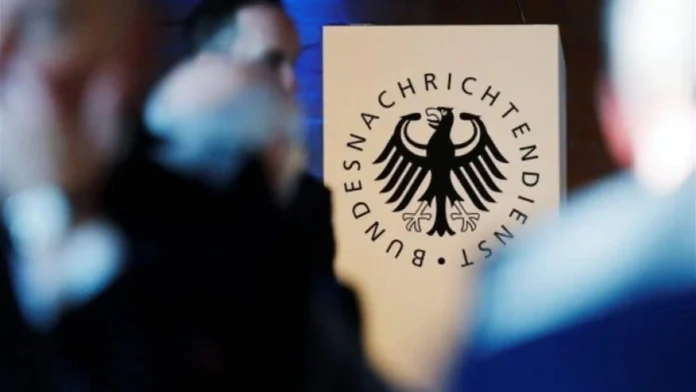In a significant diplomatic move, Ole Diehl, Deputy Director of the German Federal Intelligence Service (BND), met with Sheikh Naim Qassem, the Deputy Secretary-General of Hezbollah, in Beirut on Saturday evening.
This meeting, reported by the Hezbollah-affiliated Lebanese news organization Al Akhkbar on Tuesday, marks the second encounter between the two officials. The discussions focused on the escalating tensions between Hezbollah and Israel and explored avenues to prevent a full-scale war.
The meeting was reportedly conducted in a “positive” atmosphere, according to sources familiar with the matter. This follows their initial meeting in January, which was also aimed at addressing the Iranian proxy’s attacks on Israel.
A key topic of discussion was the ongoing aggression between Hezbollah and Israel. Diehl conveyed Israel’s firm stance on the necessity to return displaced northern residents to their homes.
He emphasized that Israel is prepared to engage in military action against Hezbollah if needed to achieve this goal. The displacement of Israeli citizens in the north has been a critical issue, especially given recent comments by US Secretary of State Antony Blinken.
Blinken highlighted that residents of northern Israel “don’t feel safe to go to their homes” and that Israel had “lost sovereignty” over the northern portion of the country due to Hezbollah’s attacks.
Diehl warned that any miscalculation or mistake by either side could escalate into a full-blown war. The German envoy’s mission appears to be one of mediation, aiming to reduce hostilities and avoid further conflict in the already volatile region.
In response, Sheikh Naim Qassem reiterated Hezbollah’s position, linking any cessation of attacks on northern Israel to achieving a ceasefire in the Gaza Strip. This stance mirrors Qassem’s previous remarks to Diehl during their January meeting.
At that time, Qassem reportedly refused to entertain discussions unless Israel ceased its military actions in Gaza. He urged Germany to exert pressure on Israel to halt its aggression, maintaining that a resolution in Gaza was a precondition for any broader peace talks.
The ongoing violence and diplomatic efforts underscore the fragile situation in the region. With Hezbollah continuing its attacks and Israel poised to defend its territory and citizens, the potential for conflict remains high.
The international community, including Germany, is keenly observing these developments, recognizing the broader implications for regional stability.
The role of Germany in this context is particularly notable. As a significant European power with historical ties to both Israel and Lebanon, Germany is positioned uniquely to mediate and potentially influence both sides.
Diehl’s meetings with Qassem indicate a serious commitment to exploring diplomatic solutions despite the challenges posed by deeply entrenched hostilities and competing demands.
Moving forward, the international community will be watching closely to see if these diplomatic efforts yield any tangible results.
The situation remains precarious, with the possibility of war always looming. However, the dialogue between Diehl and Qassem provides a glimmer of hope that a peaceful resolution might still be attainable through sustained diplomatic engagement.
As tensions continue to simmer, the world awaits further developments, hoping that diplomacy can prevail over conflict in this troubled region.
This article was created using automation technology and was thoroughly edited and fact-checked by one of our editorial staff members

